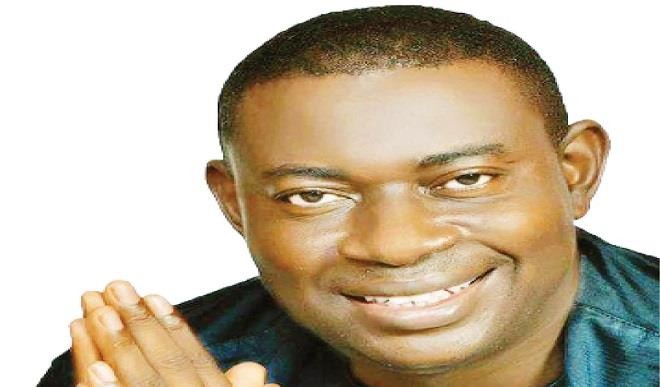Why ‘Jungle Justice’ found a place in my book – Ogwu
Tony Nkwachukwu Ogwu is author of a novella, ‘The Dreamer’s Destiny’, the first in his Mercy Series. A Reverend Father, a Carmelite priest of the Roman Catholic Church, he talks about his work of fiction, how he’s giving back to the society, and more. Bookshelf: In your first novella in the Mercy Series, ‘The […]


Tony Nkwachukwu Ogwu is author of a novella, ‘The Dreamer’s Destiny’, the first in his Mercy Series. A Reverend Father, a Carmelite priest of the Roman Catholic Church, he talks about his work of fiction, how he’s giving back to the society, and more.
Bookshelf: In your first novella in the Mercy Series, ‘The Dreamer’s Destiny’, the central character, Joseph, watched his brother, Bernard being burnt to death for stealing a loaf of bread in the very first scene. Sadly, this happens often in Nigeria. Why did you choose to open your story with that tragic incident?
Tony Nkwachukwu Ogwu: The jungle justice is a big problem that the general public needs to be aware of in the society. Most times the victims are the poor, not by choice but through our unjust social system. How many of those who loot public fund become victims of jungle justice? We have laws in our country and people should not take laws into their hands to destroy another life in the name of ‘jungle justice’. Rather, we should try to help the poor and the street boys around us get back on their feet to become useful members of our society.
Bookshelf: Both boys who were actually brothers, Joseph and Bernard, came from an unstable home where love was lacking. What did you aim to achieve with the story?
Ogwu: The aim of the story is to help individuals live above their setbacks and become an inspiration to others. God sends us help daily through human beings.
Bookshelf: When and how did the inspiration for the novella come to you?
Ogwu: I see myself as one who uses the medium of storytelling to teach, pass on important messages and also proffer solutions for social problems.
Bookshelf: You are a Reverend Father. What drew you to writing?
Ogwu: I have loved writing for as long as I can remember. Being a priest helps me to be in good spirit to write whenever I am inspired.
Bookshelf: How do you make time to write despite your busy schedule?
Ogwu: When writing is seen from my view point, as a tool for social transformation, then the joy of realising this objective outweighs the task. So, time must always be made for things that are important.
Bookshelf: Not every story ends like that of Joseph, who becomes a ward of a Reverend Father in ‘The Dreamer’s Destiny’. Also, you must have been getting some sought of feedback from readers. Can you share some of them?
Ogwu: Readers have been responding very well to my books. It’s very surprising how most secondary school students, teachers and parents appreciate my work. People have walked up to me just to thank me for writing such a good story and telling me how inspired they were reading it.
Bookshelf: Why did you start the Mercy Series?
Ogwu: My aim is to address some social ills and proffer solutions to some them. In ‘The Dreamer’s Destiny’ I brought to focus the issue of street boys and the negative impact of jungle justice on the society, the hard work needed to transform such boys and the good that could come out of such effort if we can embark on such projects. The outcome is seen in the life of Joseph.
The second work in this series is ‘The Ugly Circle’ where I raised the topic of domestic violence and the negative impact it has on children who will later become adults. Domestic violence introduces negative lifestyles in children if unchecked. It creates an ugly circle which the society can help to break by speaking out against abuse and violence against women and children in our homes. Sarah, a police officer with a special squad on domestic violence teamed up with Kate to bring her father, the Chief Judge, to book.
The third in the series is ‘Crossing The Bridge’ where the trauma experienced by Victor, a young boy who lost his father in a car accident, made him develop an inferiority complex, as well as steps and pains he took to bounce back.
Bookshelf: How do you view the development of Nigerian literature today?
Ogwu: Many years into independence and we are still struggling to put everything on the right track. Many students don’t like to read novels. They find little or no interest in literature but at the end of the day some of them will want to become musicians and actors. If we had enough basic schemes to encourage students, it will be nice. Reading opens up horizons.
Bookshelf: Have you made any personal effort in the development of Nigerian literature?
Ogwu: Yes, I have organised an Art Scholarship Competition for secondary school students, which is currently on-going in many states. It’s aimed at encouraging our students to develop their talents and also mentor them in these areas. Experts groom them in their areas of interest for two months.
Bookshelf: How do students get to partake?
Ogwu: By buying a copy of one of these novels: ‘Dreamer’s Destiny’, ‘Ugly Circle’ or ‘Crossing the Bridge’. They need to fill the form inside and they are in for the competition.
Bookshelf: What writers will you say mentored you through their works?
Ogwu: The most prominent is Chinua Achebe.
